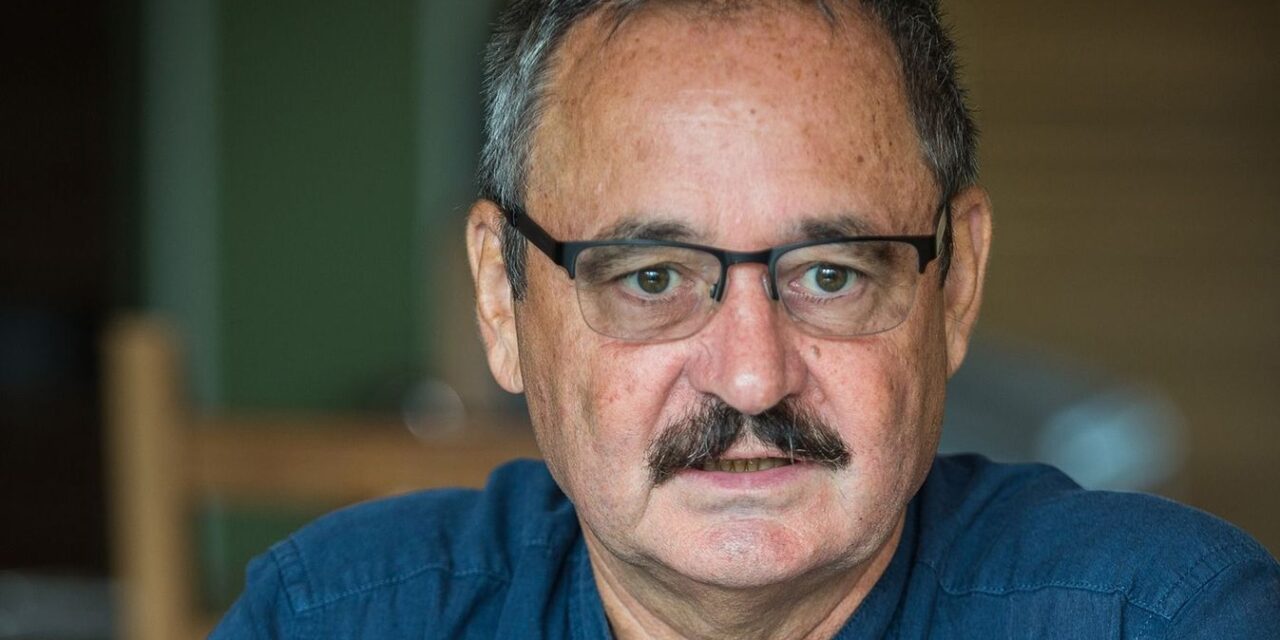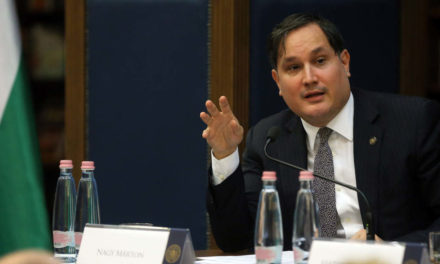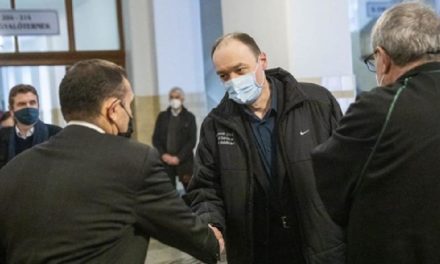Hungarian sovereignty never meant much to György Raskó, even on the eve of our accession to the EU, he said: he is happy that Hungarian agricultural policy will be managed from Brussels.
In addition, the green baron, as one of the central figures of the privatization of the 90s, took the lion's share in the almost complete transfer of the food industry to foreign hands, and in his later statements he also considered the decisions favorable to foreign investors to be a good decision. It is noteworthy that Péter Magyar, who also knows Raskó as one of his supporters, expressed his views on economics on his social media page, when he demanded the dismantling of the EU agricultural support system along the lines of the European Commission's ideas, which would lead to the mass bankruptcy of Hungarian farmers.
Although there are many debatable elements of György Raskó's political career and public activities, the most questionable moment is perhaps the fact that foreign interests may have influenced his decisions.
As one of the central figures of privatization after the regime change, Raskó, for example, contributed to
a significant part of the food industry fell into foreign hands.
Although it is possible to argue - as the economist did in his book Privatization of the Food Industry in Hungary, published in 1999 - that a large-scale involvement of foreign capital was necessary, based on knowledge of the life of the agricultural entrepreneur, Raskó's national commitment is at least questioned.
An unconstitutional position
It is noteworthy, for example, that György Raskó could be a member of the board of directors of the State Property Agency (ÁVÜ), which is responsible for privatization, while at the same time holding this position unconstitutionally according to the decision of the Constitutional Court, since at that time he had an interest in a soy import company that was a competitor to Hungarian agriculture, Hunsoya Kft. After the crown jewel of the hugely profitable vegetable oil industry, Növényolejaipari és Mosószergyártó Vállalat (Nömov), was sold to the Italian Feruzzi group in 1991-1992, some in professional circles believed that Raskó "was involved in the sale of the company for a large commission". One of the losers of the tender went all the way to the Supreme Court for his rights, but he lost at all levels, and the parliamentary investigation committee cleared the state secretary in the case. In addition, after the scandals arising from the drumming of the vegetable oil industry, many of his allies criticized the privatization rampage of Raskó and his colleagues.
However, György Raskó did not care much about the criticisms coming from both the government and the opposition, and he stubbornly stuck to his truth even in the face of public opinion that had solidified into a consensus. In his aforementioned book, for example, he stated:
"the involvement of capital-strong foreign investors for the structural change was simply unavoidable".
He welcomed the influence of Brussels
How György Raskó relates to our national sovereignty is best illuminated by a statement he made on the eve of our accession to the EU.
"I am also so happy about joining the EU, because then our agricultural policy will be controlled from Brussels, not from home"
- said the economist to Élét és Irodalom in November 2003.
Here it is worth noting that Péter Magyar - of whom György Raskó has recently become an enthusiastic supporter - holds eerily similar views on agricultural issues.
The president of the Tisza Party is demanding the dismantling of the EU agricultural support system along the lines of Brussels' ideas, which would, however, bankrupt Hungarian farmers.
Turning back to György Raskó, the green baron never hid the fact that he was proud of his nexus network branching abroad.
For example, in 2003 he boasted :
"The basis of my business success is the network of relationships that I built in the early 90s, during the privatization period, and the trust capital that was shown to me primarily by foreign investors."
Mexico, Colombia, Brazil
In fact, Raskó was able to start building his foreign relations much earlier than that - during the prime of the Kádár regime. His first job was the Agrimpex Foreign Trade Company, from where he quickly joined the research group created to establish the world's agricultural credit programs in 1982. Then in 1984-1985, as part of the scientific and technological cooperation between the Hungarian and Mexican governments, he taught corporate economics and accounting at the engineering training institute of the Mexican Ministry of Agriculture.
At the same time, he was a financial expert for the World Bank-financed Industrial Maize Production Program in the Federal State of Veracruz.
After a short detour, when he headed the business policy department of Magyar Hitelbank for nine months from January 1987, he worked abroad again from October of the same year: he participated in the implementation of an irrigation program supported by the World Bank in Colombia and in the states of Bahia and Pernambuco in northeastern Brazil. As an employee of the World Bank, he finally arrived on the political stage of the regime change in Hungary, and became the head of the Department of Privatization and Business Development of the Ministry of Agriculture in the cabinet of .
It should be noted: in the 1980s, only cadres loyal to the state party were given positions and jobs such as Raskó could hold in the Újvilág.
Behind the "superstar".
The green baron, who is currently supporting Péter Magyar, has been behind a number of left-wing projects since the Fidesz government in 2010. In light of the above developments, it would be almost surprising if György Raskó had not ranked behind the left's new hope.
The only thing that can be called unusual is the pathos tone in which the economist raved about the political qualities of the president of the Tisza Party, perhaps proving that his latest transfer is more serious than the previous ones.
"For the first time since Péter Magyar appeared, I spent a whole day with him, we had time to talk about details and I had the opportunity to closely observe how he works. Well, his work ethic, speed of reaction, and ability to formulate are impressive! [...] Péter Magyar has serious historical knowledge and understands first-hand macroeconomic problems and their possible solutions. In short: superstar, [...] an almost surreal outpouring of enthusiasm and love. I have never experienced anything like this"
he wrote in a Facebook post.
In order to get an idea of Péter Magyar's real information, it is more correct to recall the statements of the Tisza Party chairman.
For example, on the eve of the inaugural session of the Metropolitan Assembly, Magyar drew unwanted attention to himself with several statements that revealed that, to put it mildly, he has no idea about the functioning of the Metropolitan Municipality.
Featured image: Ádam Draskovics/Hungarian Nation













